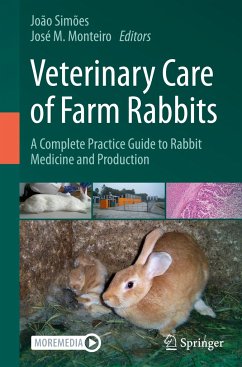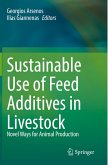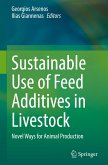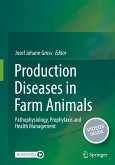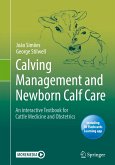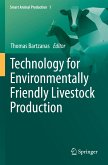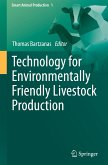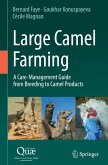This holistic guide brings rabbit production science and medicine together. It considers the full spectrum of commercial rabbit husbandry, including intensive, semi-intensive, and organic systems for meat, fur and leather. Drawn from an international authorship, the book addresses practical and fundamental topics. In comprehensive sections, readers will find easy-to-read chapters on:
-rabbit breeds, anatomy essentials and lagomorph physiology-rabbit production with details on animal facilities and farm design, international trading, rabbit meat processing and biosafety, including a vivid appendix on meat inspection-rabbit herd and health management, considering latest findings in welfare and behavior, preventive medicine, antimicrobial resistance and demedication to necropsy and specimen collection-significant rabbit diseases, covering encephalitozoonosis cuniculi, rabbit enteropathies, and many more-complete veterinary treatment, supplemented by reference ranges and interpretation of hematological and biochemical values
Besides an increasing keeping of pet rabbits, the animals are gaining interest for sustainable food production, leading to a rise in farming in various parts of the world. In this context, the present guide provides valuable contributions for consulting veterinarians and students, industry professionals, breeders and technicians, as well as for experts from the small and companion animal sector.The relevance of rabbit farming from the viewpoints of greenhouse gas reduction and sustainable use of ecological resources (use of local feed) also creates useful links for readers interested in the sustainable development goals SDG 2 (Zero Hunger) and SDG 12 (Responsible Consumption and Production).
-rabbit breeds, anatomy essentials and lagomorph physiology-rabbit production with details on animal facilities and farm design, international trading, rabbit meat processing and biosafety, including a vivid appendix on meat inspection-rabbit herd and health management, considering latest findings in welfare and behavior, preventive medicine, antimicrobial resistance and demedication to necropsy and specimen collection-significant rabbit diseases, covering encephalitozoonosis cuniculi, rabbit enteropathies, and many more-complete veterinary treatment, supplemented by reference ranges and interpretation of hematological and biochemical values
Besides an increasing keeping of pet rabbits, the animals are gaining interest for sustainable food production, leading to a rise in farming in various parts of the world. In this context, the present guide provides valuable contributions for consulting veterinarians and students, industry professionals, breeders and technicians, as well as for experts from the small and companion animal sector.The relevance of rabbit farming from the viewpoints of greenhouse gas reduction and sustainable use of ecological resources (use of local feed) also creates useful links for readers interested in the sustainable development goals SDG 2 (Zero Hunger) and SDG 12 (Responsible Consumption and Production).

